Climate change: Polls shows rising demand for government action
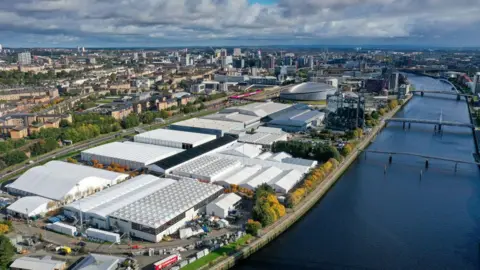 Getty Images
Getty ImagesPopular support for governments to take tough action on climate change is growing around the world, according to a BBC World Service opinion poll.
The survey of over 30,000 people finds that 56% want their countries to play a leadership role at the critical COP26 meeting next week.
The desire to see ambitious goals set in Glasgow has grown substantially since 2015.
Concern about climate change is also at its highest point since 1998.
Presidents and prime ministers from around 120 countries will gather in Glasgow next week for the COP26 conference, dubbed the last, best chance of averting dangerous climate change.
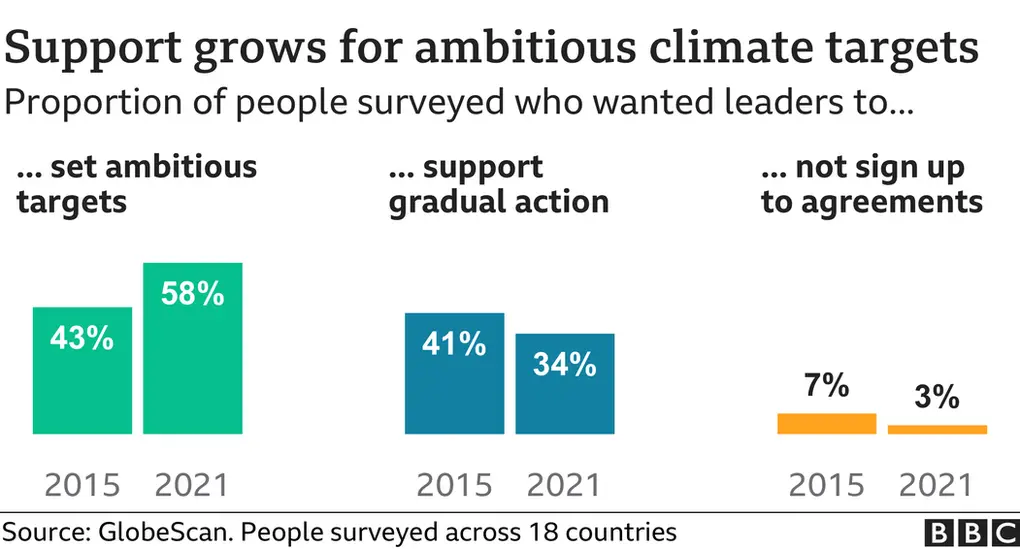
Recent research shows that the plans so far on the table will not prevent global temperatures going far above 1.5C this century - a level that scientists say is the gateway to extreme impacts.
The UK, which is presiding over the talks, will hope that in negotiations with leaders they will be able to find a pathway that reduces emissions fast enough to stay below 1.5C.
This new poll suggests that people in rich and poor nations alike are supportive of the idea of greater ambition from their leaders.
Across the 31 countries polled, an average of 56% of people want their governments to set stronger targets that would address climate change as quickly as possible.
Another 36% want their government to take a more moderate approach and support gradual action.
Just 8% want their governments to oppose a deal.
In the 18 countries where a similar survey was carried out ahead of COP21 in Paris in 2015, the expectation for governments to play a leading role has grown substantially.
In 2015, 43% of those polled wanted strong action, but that has risen to 58% now.
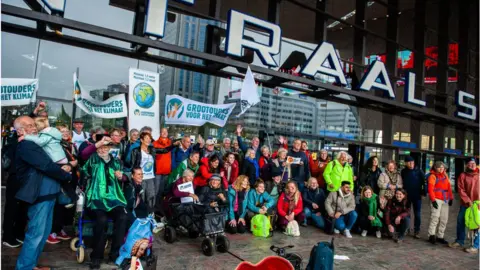 Getty Images
Getty Images"In advance of the COP21 meeting in Paris in 2015, global public opinion exhibited relatively strong expectations for governments to deliver an ambitious climate change agreement, which in the end is what transpired," said Chris Coulter, the chief executive of Globescan, which carried out the poll.
"Now, in advance of the COP26 meeting in Glasgow next week, we are seeing significantly higher levels of expectations - an increase of 25% worldwide - for governments to conclude an ambitious deal. This is an extraordinary shift in a relatively short period of time and the implications being that governments that don't deliver on these expectations could face political consequences."
There are some interesting changes in some of the biggest emitting countries, particularly China, where the percentage of respondents wanting to see their country play a leadership role has increased from 18% in 2015 to 46% now.
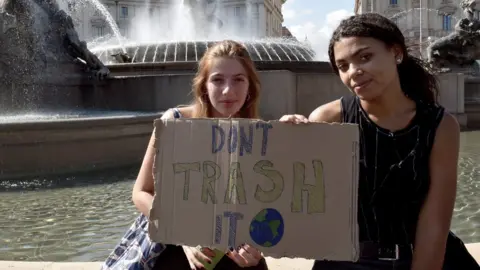 Getty Images
Getty ImagesIndia also sees a rise from 38% then to 56% now, with the US also showing an uptick from 45% of respondents then to 56% now.
Only in Russia did the pollsters find a decline in support for stronger government leadership at COP26, with only 38% backing this approach, down from almost 50% in 2015.
On the question of addressing climate change, respondents were fairly evenly divided, with 61% overall saying that governments had the responsibility while 57% said that companies were in the frame.
On the issue of individuals, only 36% said that the answers should come from them.
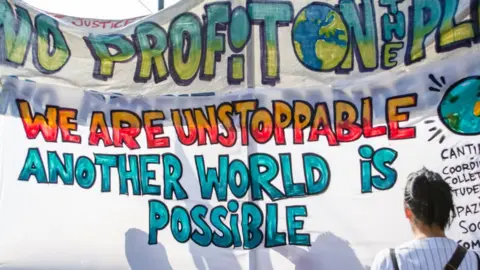 Getty Images
Getty ImagesThis question turned up an interesting age difference with four in 10 respondents under 30 years of age saying that individuals held a great deal of responsibility, while only three in 10 of those over 30 saw it the same way.
Overall concern about climate change is at its highest level since Globescan first started tracking this concern - in 17 countries -back in 1998. Some 63% of people now see it as a "very serious" issue.
There have also been large increases in the numbers of people saying that weather patterns have become highly unusual and alarming, particularly in France and the UK, where the numbers have doubled since 2015.
More details on the poll can be found here.
Follow Matt on Twitter.
